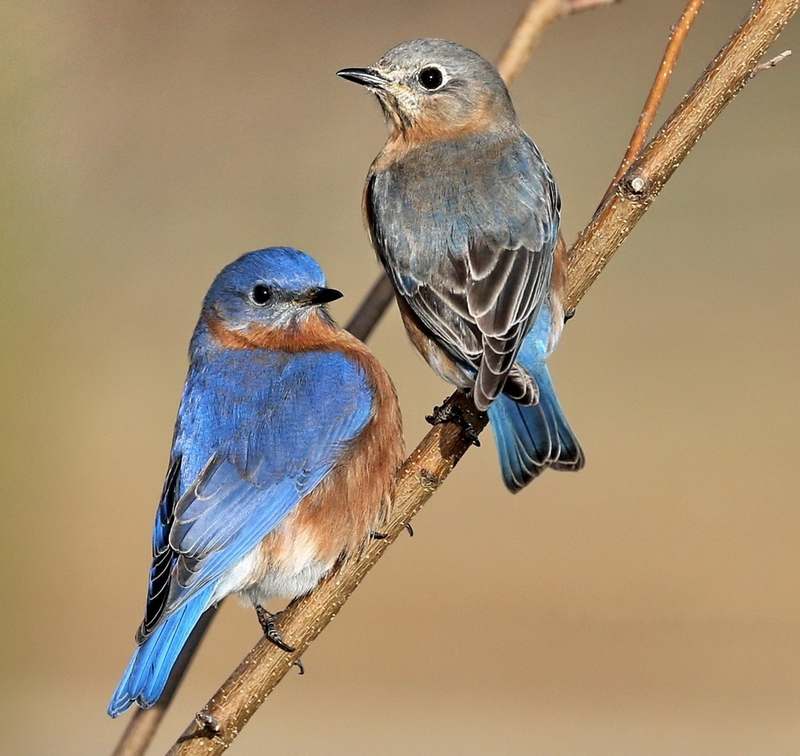The Lord knows all human plans; he knows that they are futile. Psalm 94:11
It’s winter. It’s cold. All of the deciduous trees in our yard are naked and much of the wildlife has either migrated or hunkered down to keep warm. Except the bluebirds. And a few sparrows.
A couple of days ago, I was sitting in my sunroom and heard a loud thwumpping sound at the window. That’s when I saw two bluebirds (one male and one female) hurling themselves at the glass. I tried to shoo them away, and they would leave momentarily, but then return exhibiting the same behavior. I felt so sorry for them and helpless as to what to do. Of course, when in doubt, search the Internet.
Google said that they might be seeing their reflections in the window and, believing themselves other birds making threats to their nests, they were fighting to protect their young. I saw no nearby nests, so I kept seeking a motive and a solution.
I wondered if they were hungry, so I put out some seed in the feeder only to find out later—online—that bluebirds don’t eat seeds. They are carnivores. They eat worms and bugs. The thwumpping continued. I was afraid these two beautiful birds would hurt themselves in their futility. Maybe they were trying to find warmth; however letting them inside my house would be more destructive, to them and my house, than helpful. Don’t birds have instincts and feathers that protect them from the weather?
I kept looking for reasons why these creatures were so persistent. And why at my window. Some superstitions say that bluebirds at the window are an omen—a sign of impending doom. Other superstitions say that these creatures are trying to deliver a message of glad tidings. Yeah. Right.
To me, of course, this was a metaphor that I became determined to unpack.
Like the birds, how often do we flail against an illusion—obsessed with a perceived threat—worried about failures in the past that might still plague us, or an imagined future catastrophe that probably won’t happen? We’re prone to exhausting ourselves by the mere thought of danger or disappointment, or both.
Or maybe we look at our reflections but don’t like what we see. Instead of making positive changes, we thrash about with self-loathing and revulsion.
And there is a possibility that we see only what we want to see, not what is really there. In the present political climate, this seems to be the most prominent illusion that makes us not only fight with ourselves, but with others. Families are being torn apart by opinion and preconceived notions.
No matter, it seems that all of these possibilities demonstrated by the bluebirds are driven by self-absorption—and/or fear. Jesus said this about that:
“Therefore I tell you, do not worry about your life, what you will eat or drink; or about your body, what you will wear. Is not life more than food, and the body more than clothes? Look at the birds of the air; they do not sow or reap or store away in barns, and yet your heavenly Father feeds them. Are you not much more valuable than they?” Matthew 6:25-34
This is my favorite prophet’s words.
LORD, you are the one who protects me and gives me strength; you help me in times of trouble. Jeremiah 16:19

So very very very very good!!! Thanks for sharing these thoughts.
Thanks, my friend.
So very very very very good!!! Thanks for sharing these thoughts.